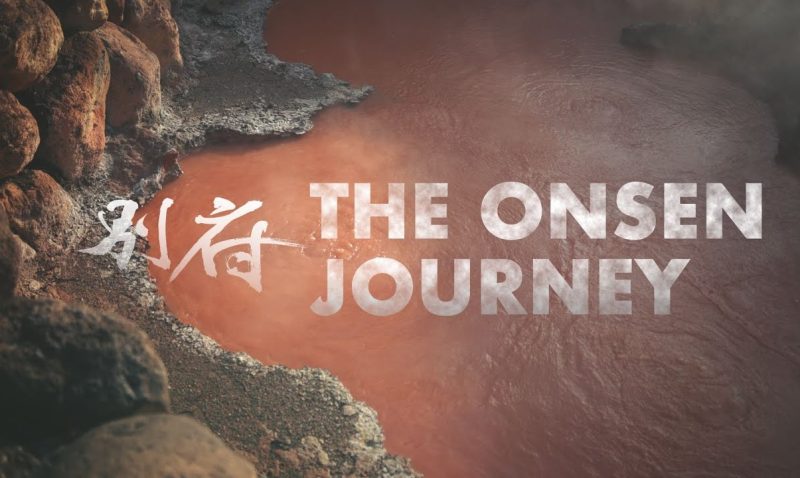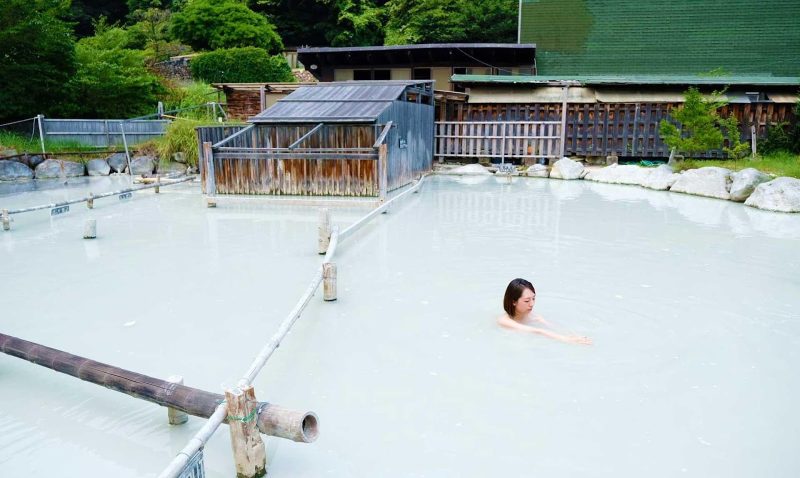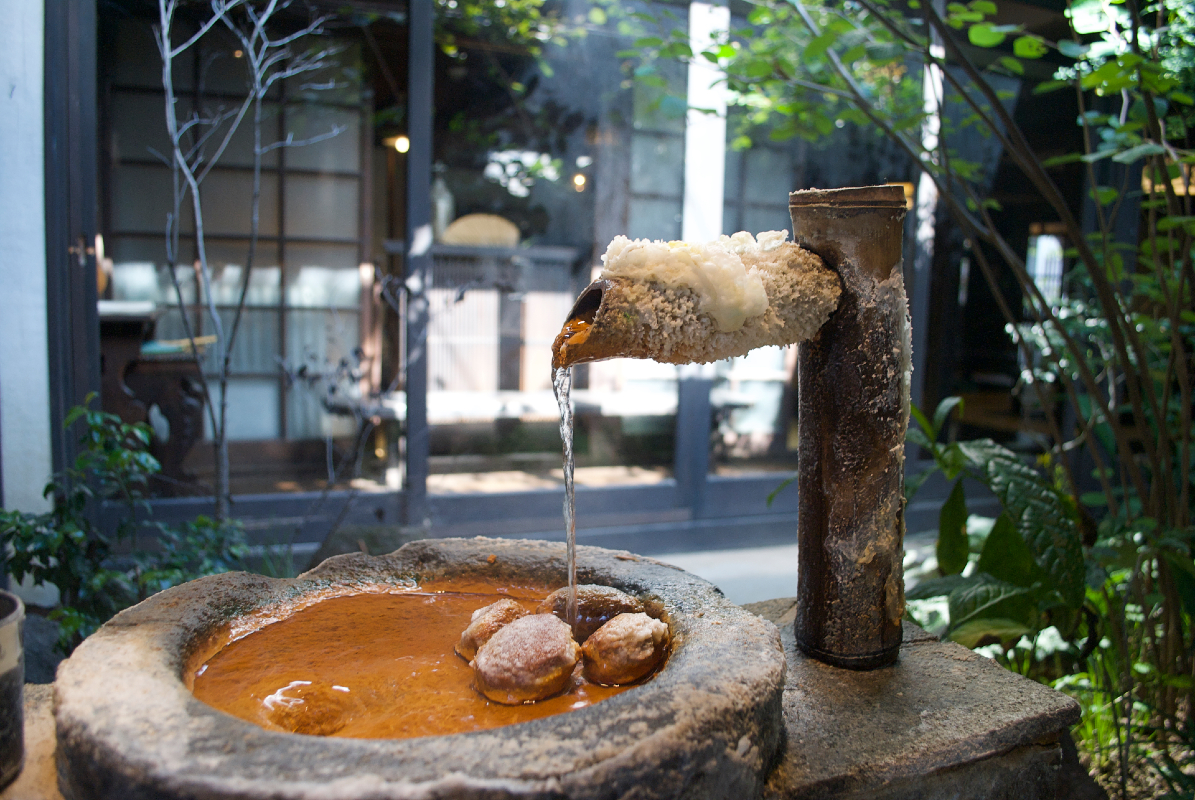
Onsen waters come from deep inside the Earth’s crust where they are imbued with minerals from volcanic gases. From the onsen experts, Toji Joshi, we learned how soaking in mineral-rich hot spring waters provides many health benefits. But what about ingesting this onsen water? Is hot spring water safe to drink?
Can You Drink Onsen Water? History Of Drinking Hot Springs
The act of drinking onsen water is called “insen” in Japanese. It is derived from the character 飲 or “in” meaning to drink and 泉 “sen” the same character as found in “onsen” (温泉) which means spring. Though soaking in onsen is a custom practiced throughout Japan, drinking hot spring water isn’t as common. In fact, Europe has a larger culture of drinking hot springs and water cure therapy has been offered in that region for hundreds of years. You can read more about European spas with drinkable springs at Best European Health Spas.
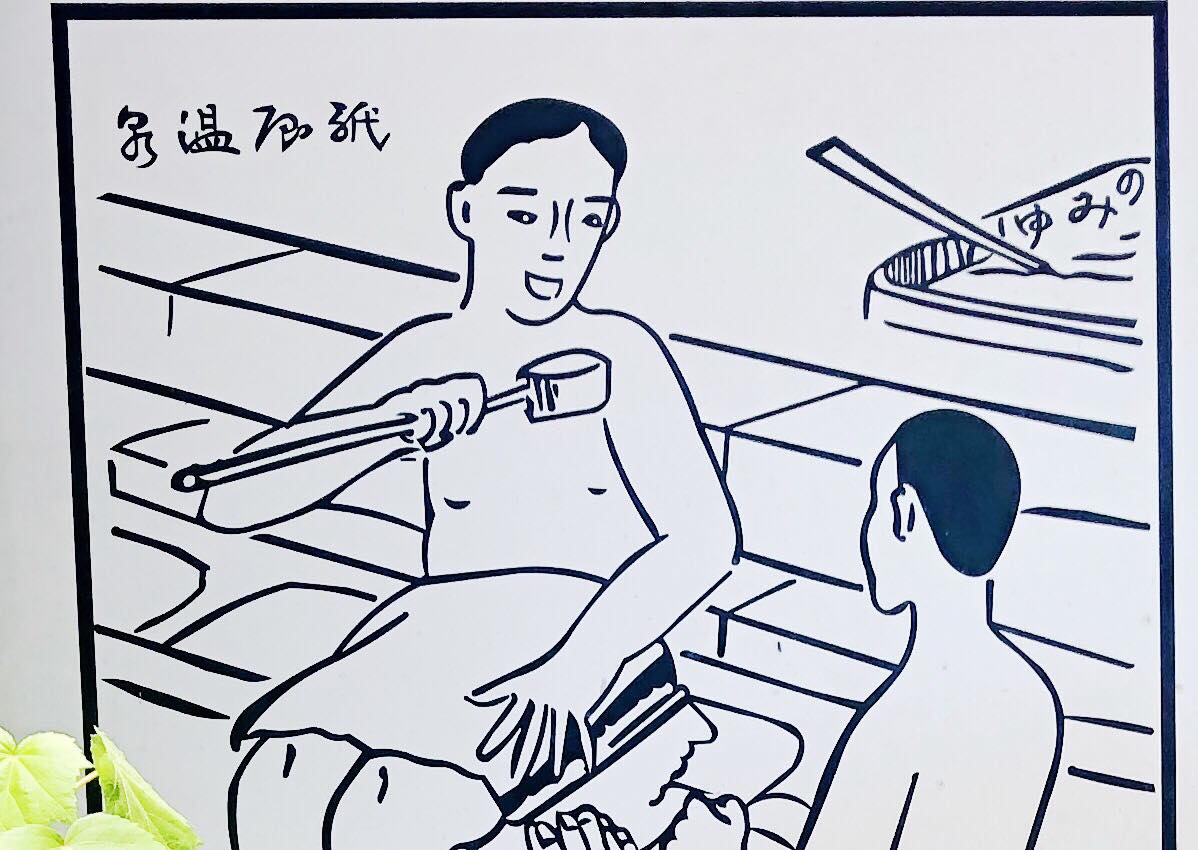
As for Oita, known as the onsen prefecture of Japan, an 8th century historical document contains a passage about drinking a certain onsen, describing it as sour and effective against scabies. Though insen may have a long history, the Japanese do not widely regard drinking springs as a part of everyday life as in some western cultures.
However, just like the practice of “toji,” or onsen healing, the practice of insen is being reexamined. Onsen contain many minerals that promote health just by soaking in them. So, it follows that ingesting these minerals must also have some health benefits, right?
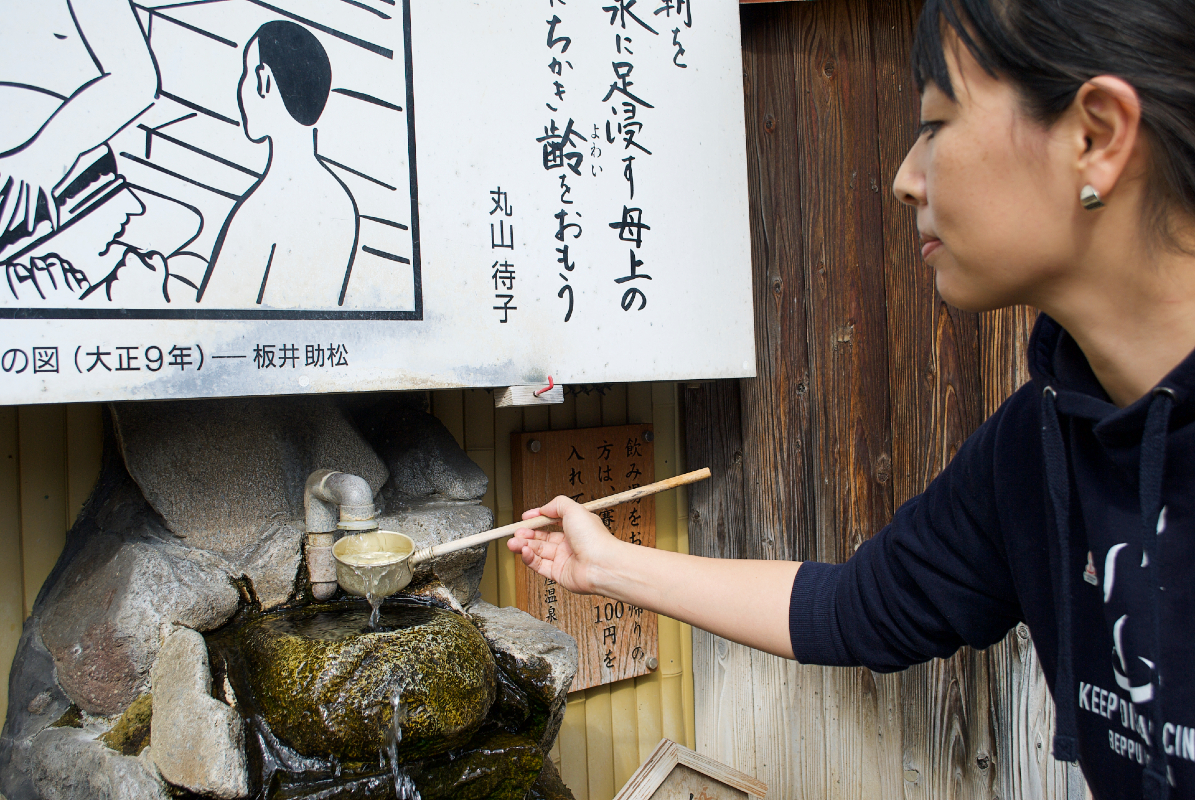
Is Hot Spring Water Good For You?
Insen fans commonly say that drinking onsen works for digestive health. For stomach aches, constipation or other digestive issues, these individuals believe insen is the answer. According to the Japan Spa Association, research shows that drinking onsen has a localized effect on the gastrointestinal tract and liver, and the Oita Prefectural Pharmaceutical Association includes with this positive effects on metabolism, and blood forming functions, as well.
Different types of onsen (which are listed in our article How Onsen Works: A Geothermal Gift have different components and thus, different benefits when consumed. These benefits are listed at https://insen.club/effect/ (Japanese). To optimize its benefits, it is recommended to take a certain amount of the hot spring at the same time each day.
Health Benefits
gastrointestinal tract and liver
- constipation
- atrophic gastritis
- gastroduodenal ulcer
- reflux esophagitis
- low gastrointestinal function
metabolism
- abnormal glucose tolerance(diabetes)
- hyperuricemia
- biliary dysfunction
- high cholesterol
blood forming functions
- iron-deficiency anemia
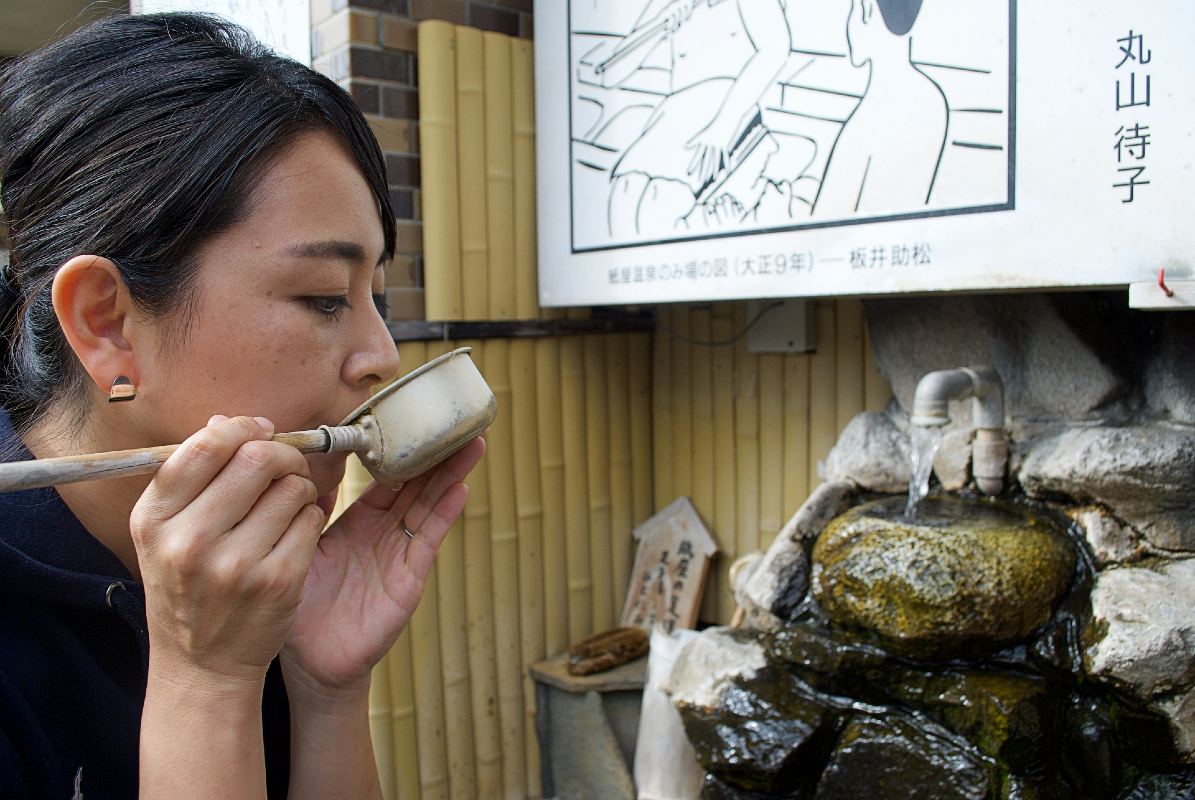
Can You Get Sick From A Hot Spring?
Not all springs are made equal, however. Some hot springs may contain germs that may be harmful if ingested. In fact, onsen establishments must apply for permission to be recognized as drinkable onsen water. Also, because the minerals are directly entering your body, drinkable onsen may aggravate certain illnesses and health conditions. Please be aware and consult with your doctor if you have concerns.
For more info on onsen drinking and safety:
Japan Spa Association’s Cautions For Drinking Onsen Water
Ministry of the Environment’s “The ABCs for the Safe and Secure Use of Onsen”
Guidelines for Insen:
- Consult with your doctor.
- Bring your own clean cup or ladle to drink.
- Please drink 100 to 150 ml at one time, and no more than 500 ml a day.
- Those under the age of 15 should not drink onsen.
- Unless otherwise specified, please drink only at the onsen establishment. Do not take home.
- To maximize benefits of insen, drink 30 minutes before a meal.
Taste
Interestingly enough, the components of the water affect the taste. For example, simple onsen, which contain less minerals, tend to taste like normal water. On the other hand, chloride onsen tend to be salty and acidic onsen taste lemony. Let’s take a look at a few spots to compare.
Beppu Insen
Oita Prefecture is home to 142 places to enjoy insen. Of course as the onsen capital of Japan, Beppu City is also home to a few interesting “insen” spots.
Kamado Jigoku
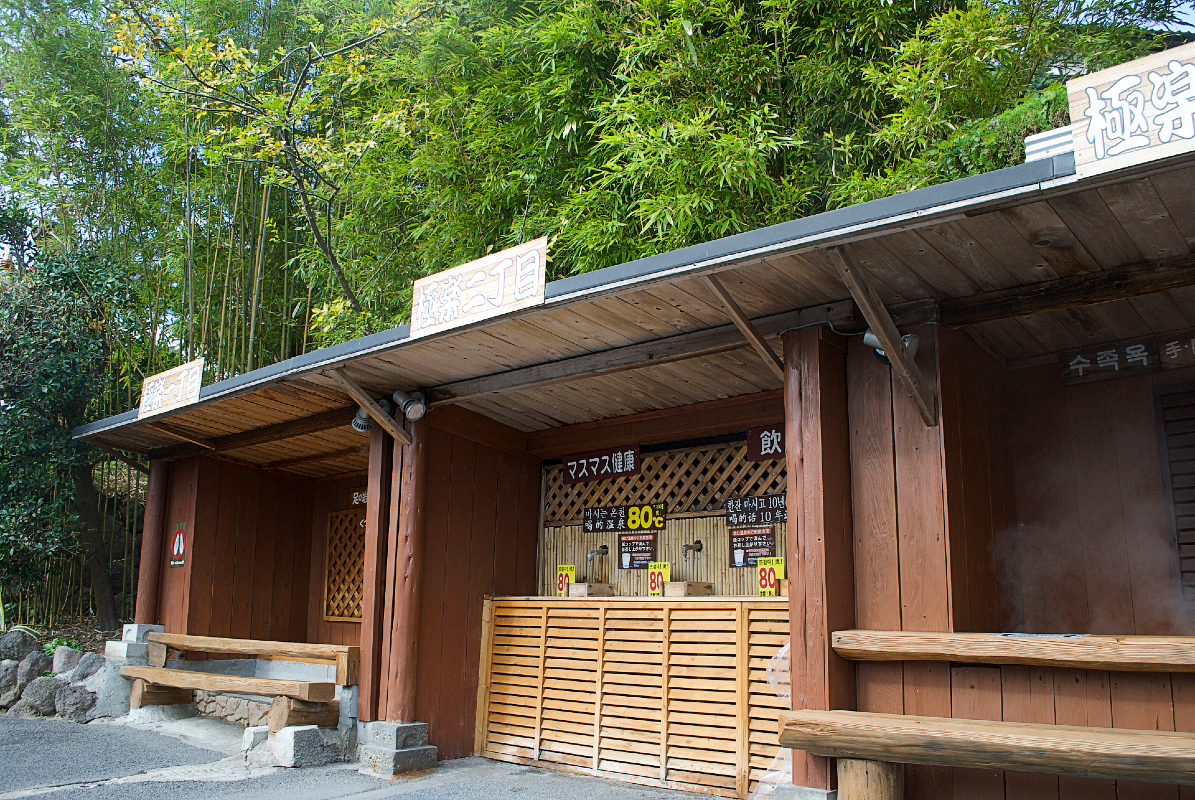
One of the famous Hells of Beppu, Kamada Jigoku lets you enjoy an array of onsen types, which of course, includes drinkable onsen. The onsen in the Kannawa area tend to be chloride springs: consequently the onsen water here is a bit salty and has almost a broth-like quality.
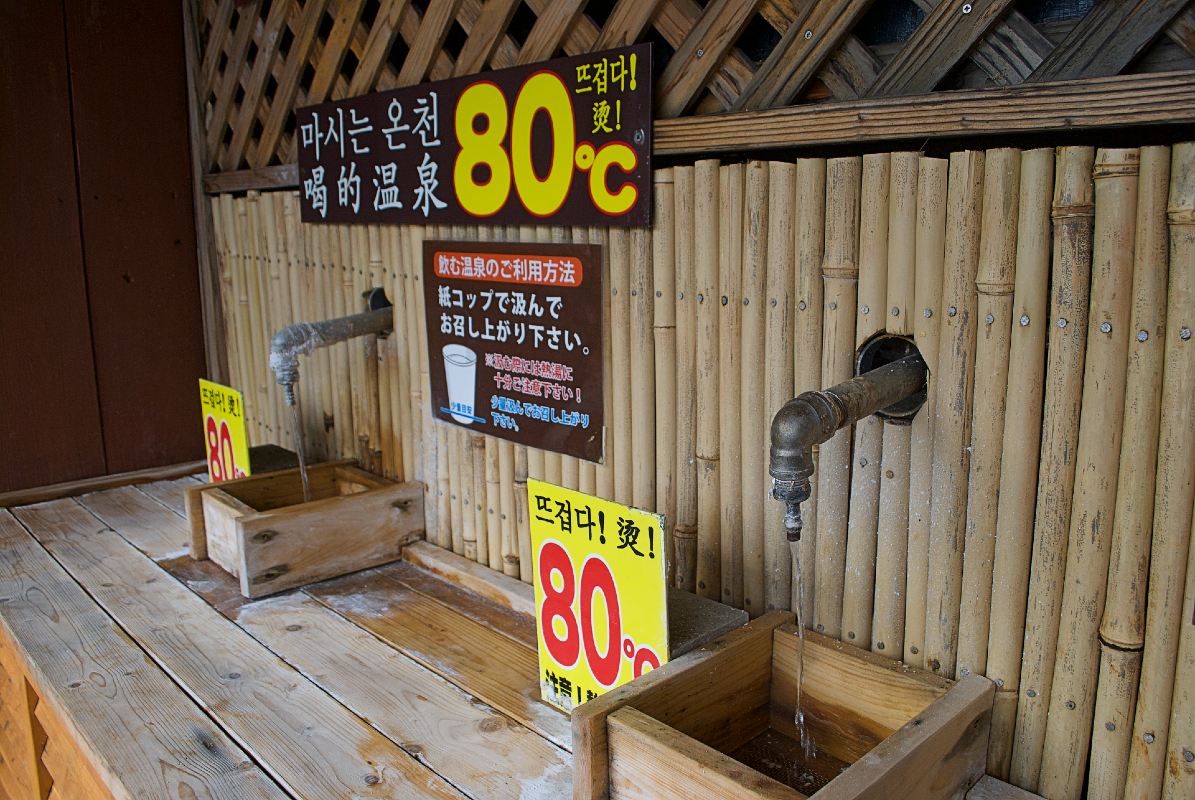
recommended for:
- chronic digestive disease
- chronic constipation
Kamiya Onsen
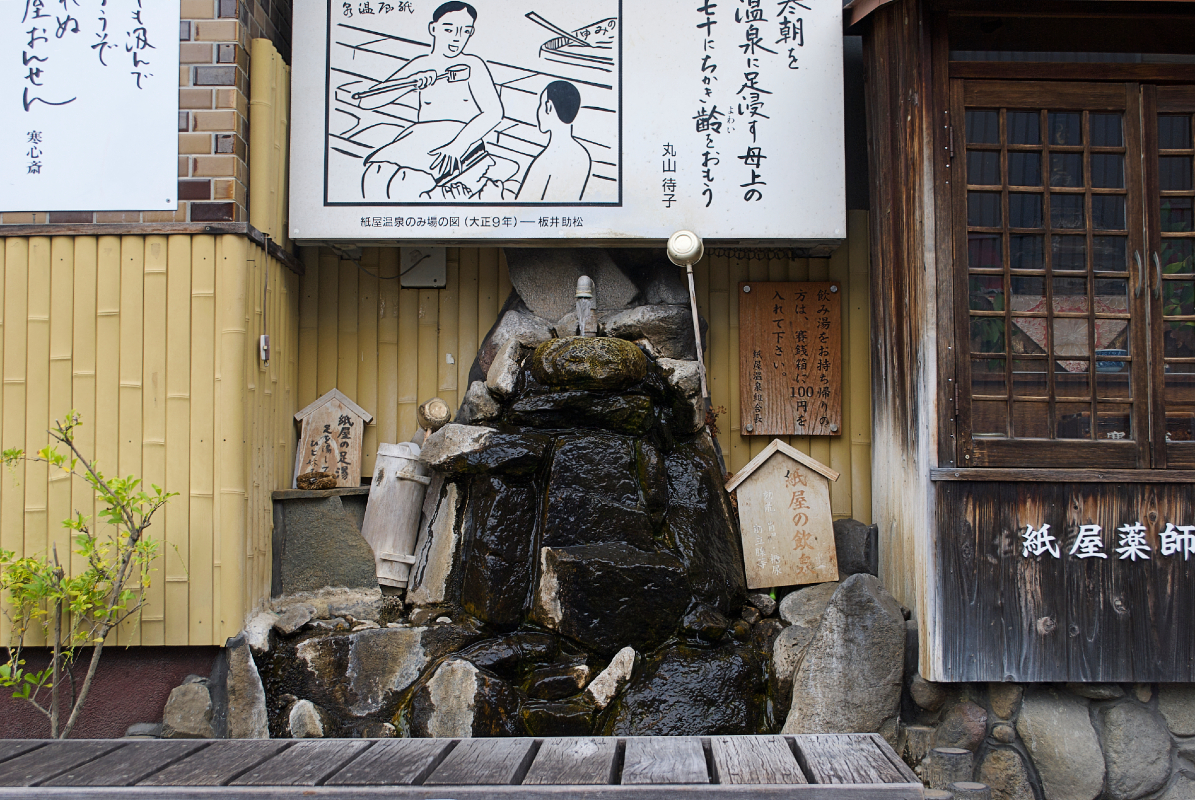
Kamiya is famous for insen. You may have a seat, rest your feet in the foot bath while you sip on its waters. This onsen’s water is clear and has a simple refreshing taste that is easy to drink.
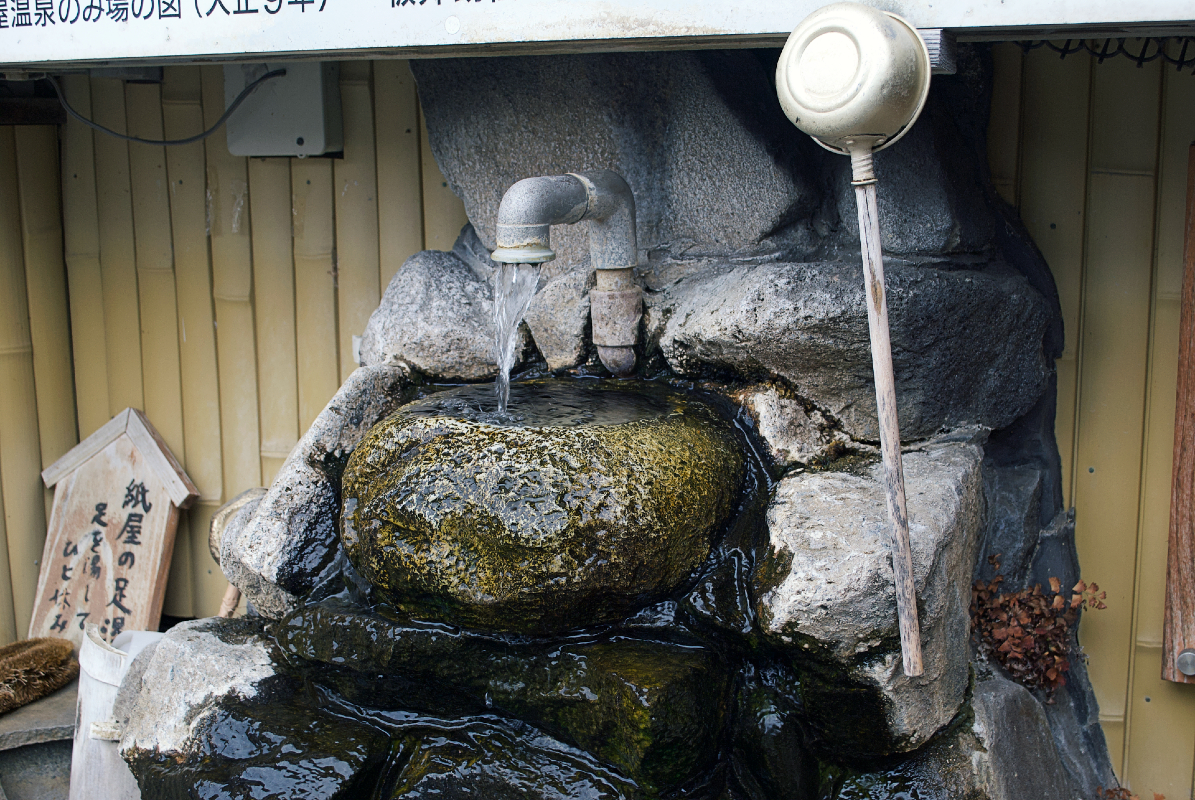
recommended for:
- constipation
- gastroduodenal ulcer
- atrophic gastritis
- reflux esophagitis
- diabetes
- gout
Cafe Natsume
At this charming Showa Era cafe not far from Beppu Station, you can enjoy onsen coffee! The water source is the same as Beppu’s Kankaiji Onssn. The coffee has a very mellow taste and is very easy to drink!
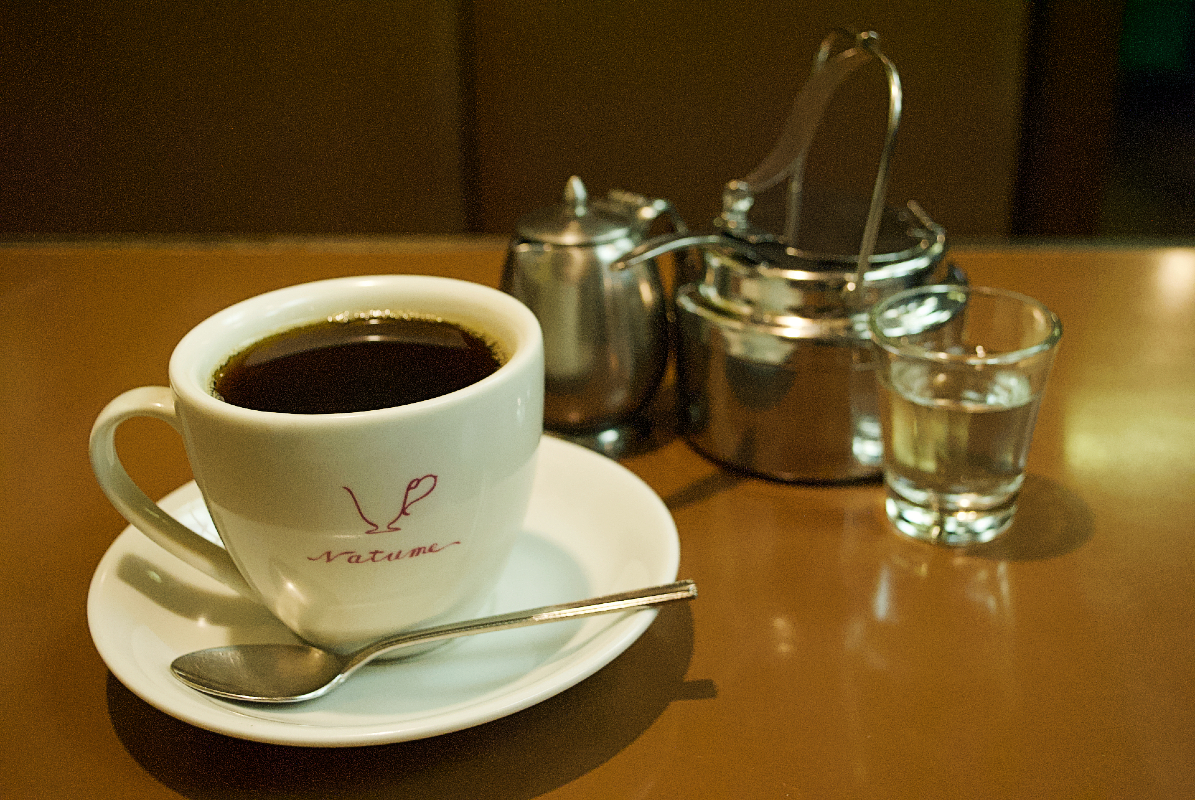
They even provided a glass of onsen water to try the pure stuff!
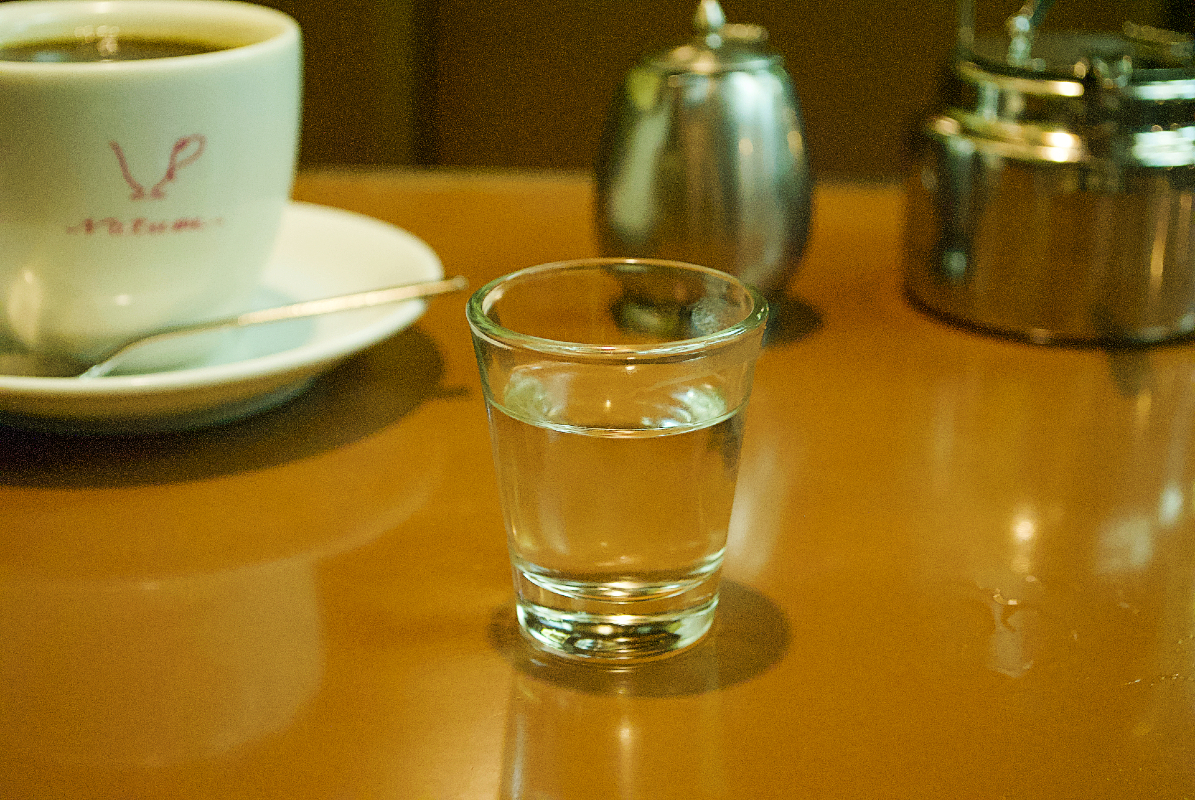
Yanagiya
This lodge lies in the toji-ba (onsen healing spot) of Kannawa. Yanagiya is an exceedingly stylish Japanese inn, combining old Meiji period style with a modern flare. The sodium chloride insen, called Reitsuki no Yu, sits in the courtyard next to steam cookers where guests can also enjoy jigokumushi or onsen steam cooking. The water is filled with minerals that give it its slightly salty, broth-like taste.
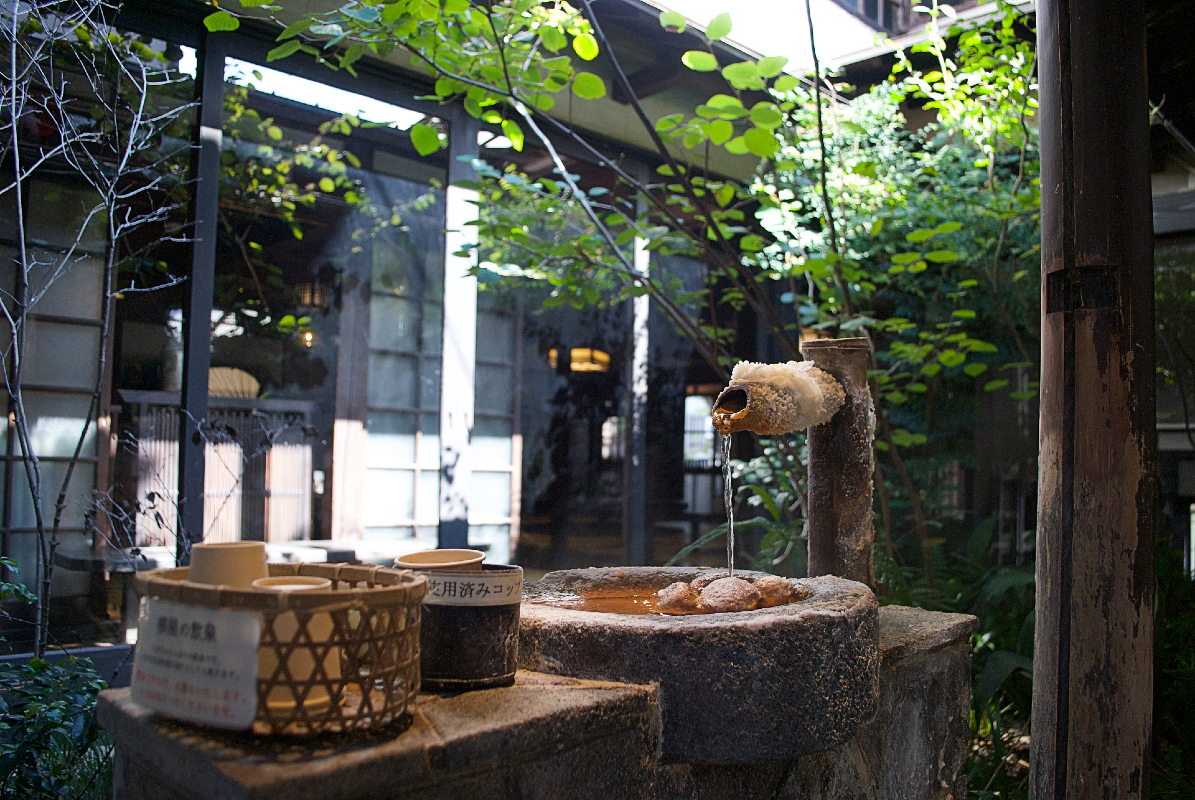
recommended for:
- chronic digestive disease
- chronic constipation
To Drink Or Not To Drink
In recent times, the move towards healthier food options and diets demonstrates we are concerned about what food we eat. But what about what water we drink?
There is a book called The Power Of Insen by Kazuyoshi Asakura、 which lists the testimonials of over 300 people throughout Japan who claim to have alleviated their illnesses by drinking onsen. One Beppu Onsen fan, who suffered from low blood pressure and fatigue, claims that since she began to switch out tea for source water, her symptoms improved. Another testified after entering and drinking onsen regularly, their atopic dermatitis cleared.
As we are organisms made of about 70 % water, it is no exaggeration to say water is life. According to The Power of Insen, not long after drinking water, the molecules reach our most important organs, including our brains and reproductive systems. If we know the influence of the water we drink on our bodies, isn’t it in our interest to drink water that is healthy for us? In any case, it may be time to reconsider the water we drink.
How to get to Beppu Onsen where these insen are located.
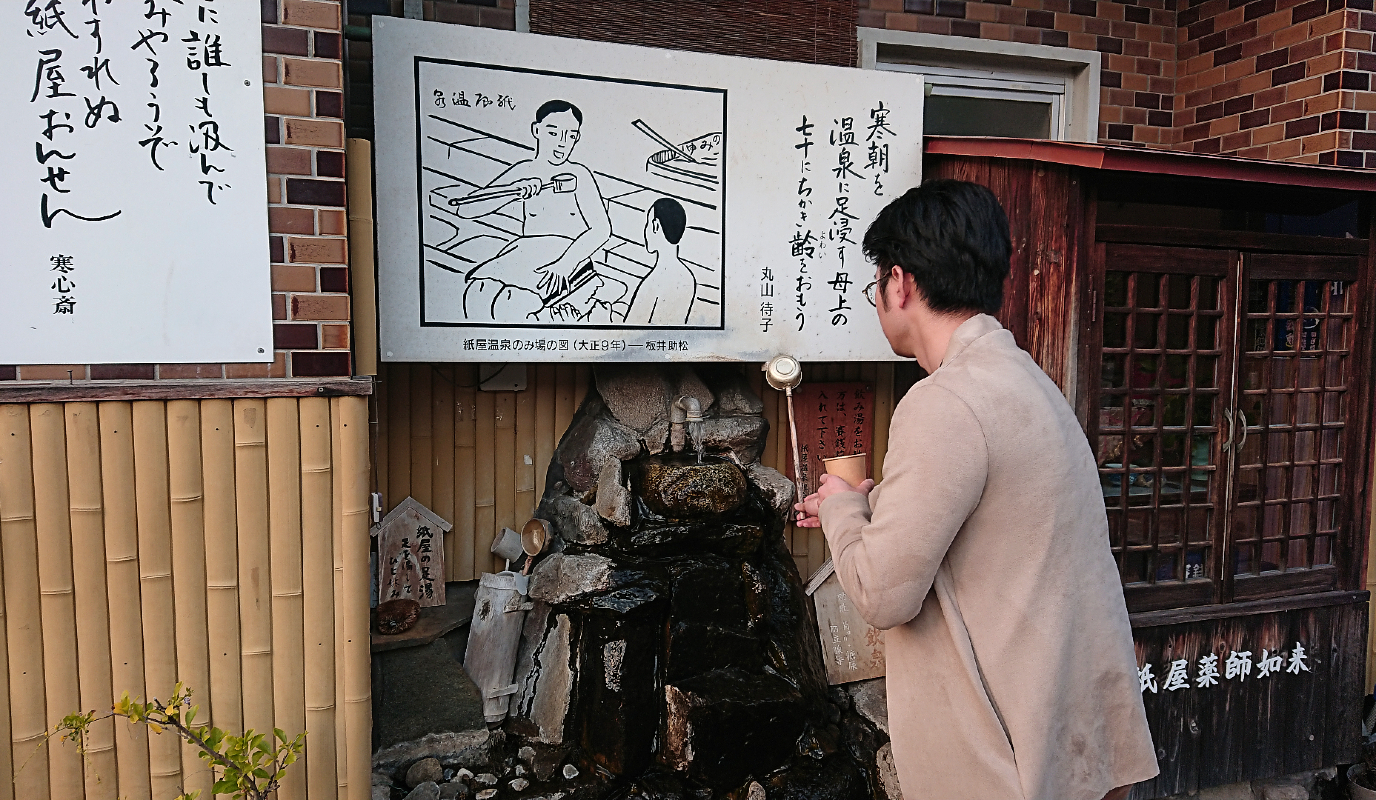
Other References
https://www.spa.or.jp/onsen/528/
The Power of Insen
Oita Onsen Prefecture’s Insen Spot 30

